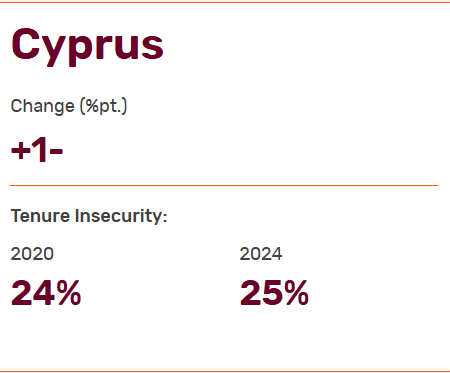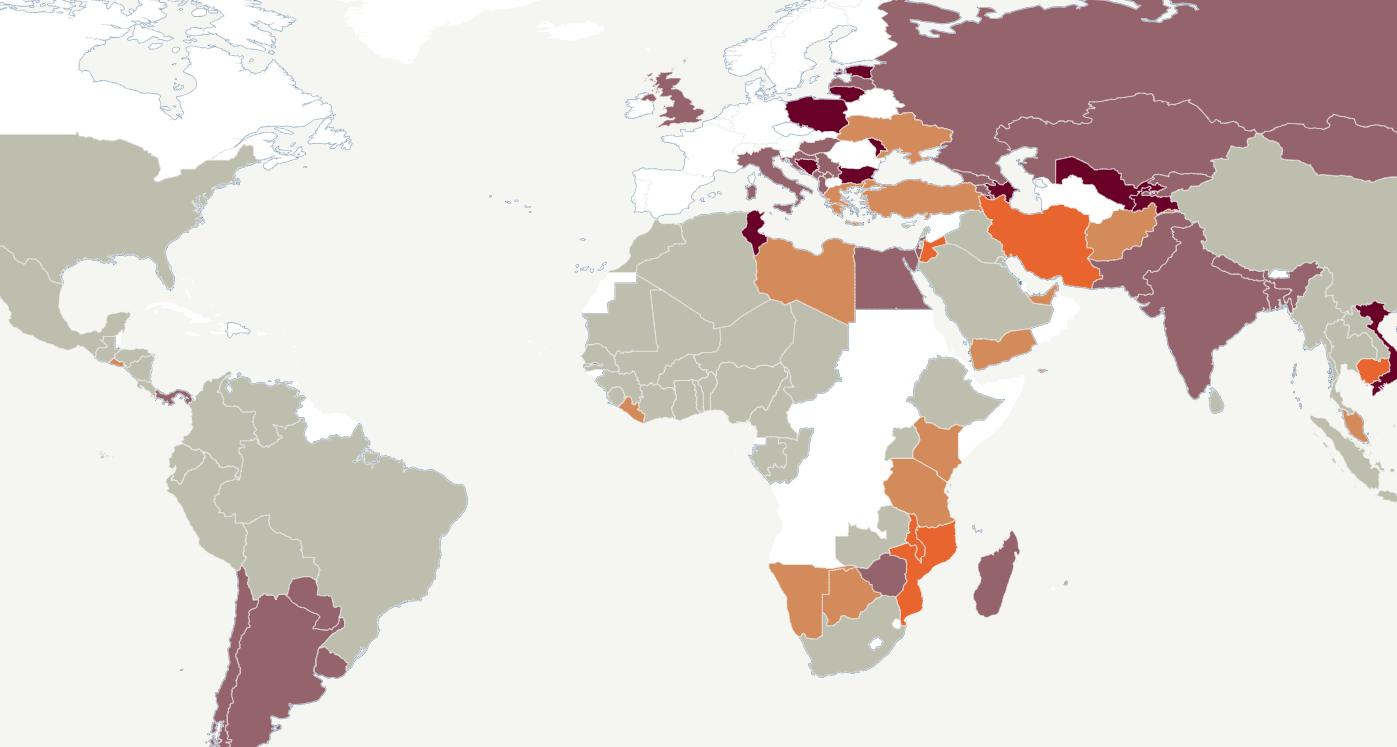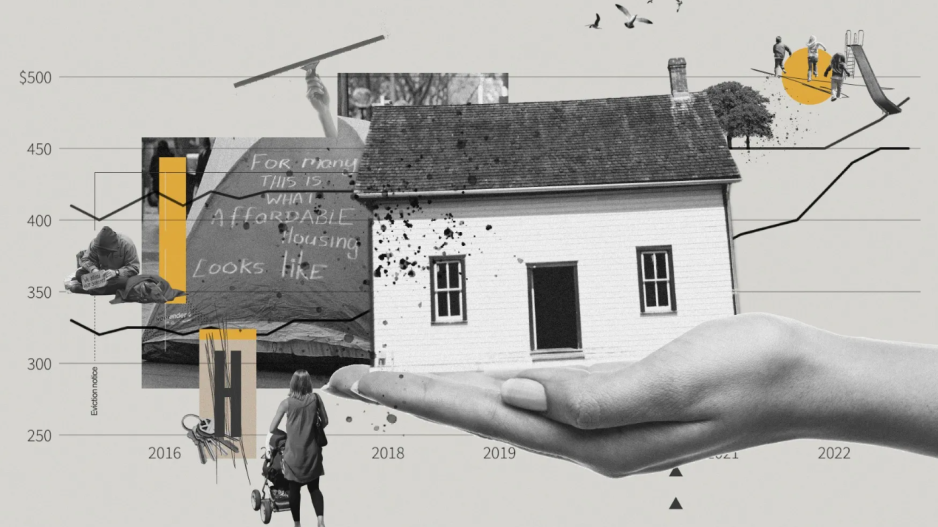1 in 4 Cypriots Feel Insecure About Housing
Cyprus Ranks Second in EU for Housing Insecurity
Housing insecurity is on the rise worldwide, including in Europe, as increasing costs of rent and mortgages drive a new crisis with unpredictable consequences. Cyprus finds itself at the center of this storm, ranking high both in the percentage of those reporting insecurity and in experiencing significant increases in this metric.
According to the Prindex 2024 Report, which assesses perceptions of land and housing tenure security, approximately 1.1 billion adults globally—representing 23% of the global population—feel insecure about their property or land rights. This perception has grown significantly over the past four years. In Europe and Central Asia, nearly one in five adults (19%) report feeling insecure. Economic pressures, such as the rising cost of rents and mortgages, are among the primary drivers of this increasing insecurity.
Among the 19 European countries surveyed in 2024—including EU member states, candidate countries, and the UK—Turkey, Greece, Ukraine, and Cyprus emerged as hotspots. Conversely, the lowest perceptions of insecurity were observed in Lithuania (6%), followed by Bulgaria and Moldova, both at 7%.

In Cyprus, one in four people (25%) expressed concerns about their housing or land security. Cyprus also ranks second-highest among EU member states in tenure insecurity, following Greece. Notably, tenure insecurity in Cyprus has risen by 1% since 2020, from 24% to 25% in 2024.
Tenure insecurity among urban residents in Cyprus increased from 22% in 2020 to 23% in 2024, while rural residents saw a rise from 27% to 29% (+2%). Among homeowners, the figure remained stable at 14%, whereas renters experienced a significant increase from 41% in 2020 to 47% in 2024 (+6%). Gender disparities are evident, with male tenure insecurity slightly decreasing from 24% to 23% (-1%), while female tenure insecurity rose from 20% to 24% (+4%). Among age groups, insecurity decreased among those younger than 25, from 27% in 2020 to 15% in 2024 (-12%), while it increased among individuals aged 25–54, from 25% to 31% (+6%). For those aged 55 and over, the rate remained stable at 14%. Regarding income adequacy, those facing difficulty saw a slight decline from 34% to 33% (-1%), while those getting by increased from 18% to 20% (+2%). Among property owners with one property, the rate stayed constant at 23%, but for those with more than one property, it rose from 20% to 26% (+6%). Employment type also played a role, with tenure insecurity increasing among full-time employees from 24% to 27% (+3%) and significantly rising among the unemployed, from 32% to 45% (+14%).
Between 2020 and 2024, Ukraine experienced the most significant increase in tenure insecurity, not just in Europe but globally, rising from 10% to 33%. This dramatic rise is attributed to the devastating effects of Russia’s invasion, which led to widespread housing destruction, land contamination, and the displacement of millions.
Respondents who reported feeling insecure were also asked to identify the reasons. The results, presented as weighted percentages of the total sample, indicate that financial difficulties and conflict are the main causes globally. The report found that increasing insecurity is linked to economic challenges, affecting a significant portion of the population unable to meet rent, mortgage, or other housing costs.

The report highlights that the world is moving further away from achieving equal land and housing rights for all by 2030, as outlined in the United Nations Sustainable Development Goals.
Malcolm Childress, the report's lead author, emphasized: “These findings are a wake-up call for policymakers worldwide. Housing insecurity is not only a problem for low-income countries—economic instability, eviction threats, and conflicts are eroding property rights for millions, including in the most developed nations.”
The report advocates for targeted, country-specific strategies to address the diverse factors driving housing insecurity. These include:
-
Financial Safety Nets: Implementing social protection policies to support renters and mortgage holders facing economic challenges.
-
Affordable Housing Programs: Expanding access to affordable housing through initiatives such as social housing and community land trusts.
-
Gender Equity Efforts: Addressing gender disparities, as women globally are less likely to have secure property rights compared to men (40% vs. 48%).
Additionally, the share of household expenses allocated to housing, water, electricity, gas, and other fuels has risen significantly in the European Union over the past 20 years.






